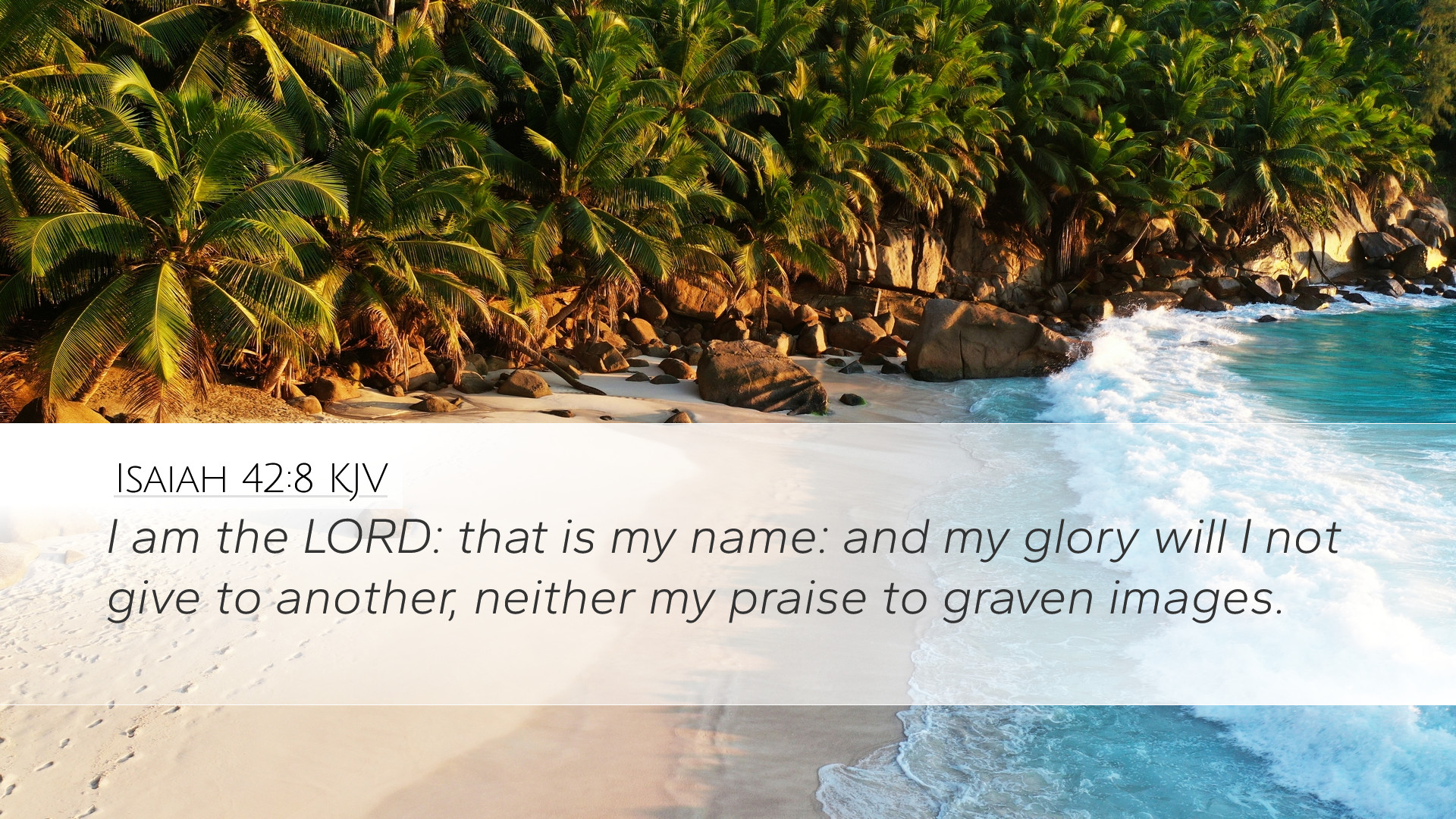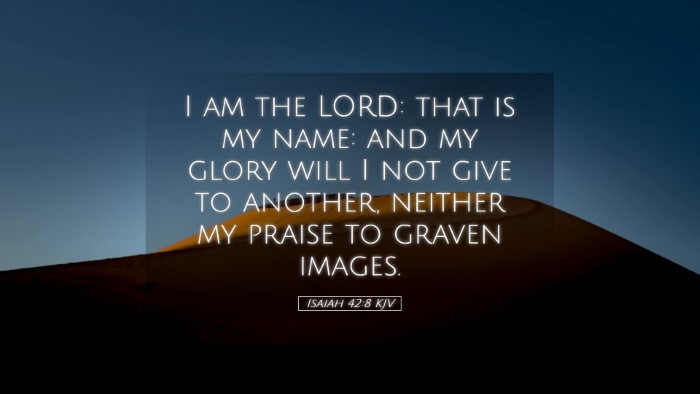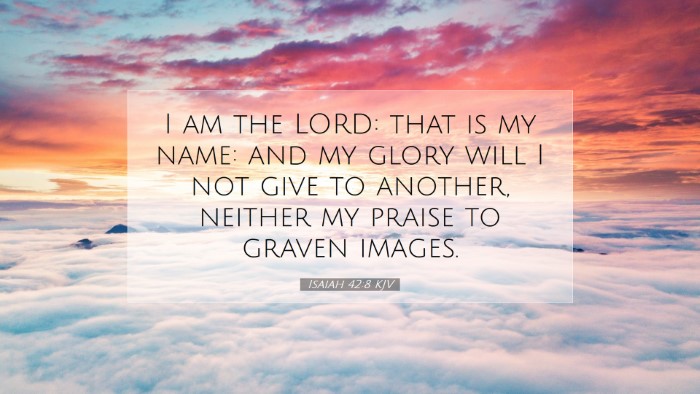Commentary on Isaiah 42:8
"I am the LORD: that is my name: and my glory will I not give to another, neither my praise to graven images."
Introduction
Isaiah 42:8 is a profound declaration of God's sovereignty and the exclusivity of His glory. This verse serves as a foundational statement in the context of biblical theology, emphasizing the nature of God as the sole object of worship and devotion. The implications of this scripture are far-reaching, resonating with themes of idolatry, divine identity, and the relationship between God and humanity.
Exegesis of the Verse
In Isaiah 42:8, God asserts His identity by stating, "I am the LORD: that is my name." This introduction is more than just a name; it indicates His self-existence, eternal nature, and covenantal relationship with His people.
- The Name of God: The name 'LORD' (YHWH) is significant, representing the God who is personal and relational, the One who reveals Himself and desires a relationship with His creation.
- Divine Glory: The declaration that God will not give His glory to another speaks to the uniqueness of His divine majesty. God’s glory encompasses His attributes, character, and works, which cannot be shared with any created thing.
- Rejection of Idolatry: The mention of "graven images" serves as a direct indictment of idolatry, warning against the human tendency to replace God with created forms.
Theological Implications
Isaiah 42:8 holds deep theological significance, especially in the context of monotheism and the fight against idolatry.
- Monotheism: This verse affirms the belief in one true God, highlighting the error of worshiping multiple entities or idols. The exclusivity of God is a primary theme throughout Isaiah and the entire scripture.
- Worship and Praise: The verse underscores the necessity of directing worship solely towards the Creator. God's refusal to share His glory signifies that any form of worship directed towards anything other than Him is inherently flawed.
- Implication for Believers: For contemporary believers, this passage serves as a call to evaluate the nature of their worship, ensuring it aligns with the truth of God's glory rather than the distractions of modern idolatry, whether it be materialism or self-sufficiency.
Insights from Public Domain Commentaries
Matthew Henry
Matthew Henry emphasizes that God's statement, "I am the LORD," establishes His authority over all creation. According to Henry, God’s assertion regarding His glory reflects His desire for His people to recognize His greatness. He details that the acknowledgment of God's glory is central to faith and worship, serving both as a comfort and a challenge to believers.
Albert Barnes
Albert Barnes points out that this verse serves as a reminder of God’s uniqueness. Barnes notes that God’s refusal to share His glory with anyone elicits a profound understanding of His nature as the only true God. He connects this declaration to the broader theme of redemption, where God's glory is ultimately revealed through His works in the world, particularly in the coming of Christ.
Adam Clarke
Adam Clarke interprets this verse with a pastoral approach, warning against the dangers of idolatry. He expounds on the phrase, "neither my praise to graven images," indicating that humans often gravitate toward physical representations of the divine, which misrepresent God's true nature. Clarke encourages believers to seek a deeper relationship with God, understanding that worship should spring from a genuine connection, rather than external forms.
Practical Application
For pastors, students, and theologians, Isaiah 42:8 offers profound insights for teaching, preaching, and personal application. Here are several areas of focus:
- Encouragement for Worship: This verse should inspire worship that is sincere and focused on the attributes of God, encouraging churches to teach congregants about the significance of God's glory in their lives.
- Idolatry in Modern Context: Pastors can lead discussions addressing modern-day idols: material wealth, power, and self-image. This verse provides a basis for confronting these issues through a biblical lens.
- The Assurance of Divine Sovereignty: Believers can draw comfort from this declaration of God’s sovereignty in their personal lives, trusting in His plans and recognizing His supreme authority over their circumstances.
Conclusion
Isaiah 42:8 is a powerful reminder of the nature of God and His rightful place in the hearts of believers. As we reflect on this verse, may we strive to honor God's glory, reject idolatry, and embrace the truth of His Word. Through our worship and lives, let us proclaim, like the prophet Isaiah, the majesty of the LORD—the God who will not share His glory.


